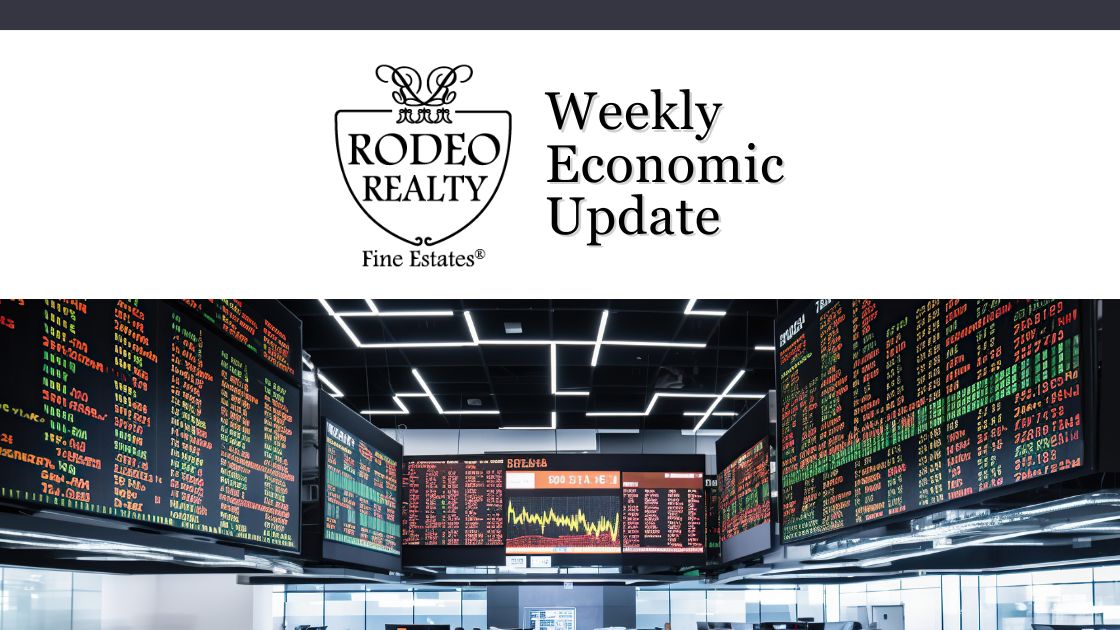| Economic news this week – May started out with stocks falling and interest rates jumping to their highest levels since last October because inflation has increased since the start of the year. Some experts, who began the year expecting four interest rate drops, were now talking about a possible Fed rate increase, but on Wednesday, Federal Reserve Chairman, Jarome Powell put investors’ fears of a rate increase to rest by saying that the Fed had no intention of raising rates and would leave rates unchanged at this time. He also said that the Fed would not continue to reduce its balance sheet aggressively and would stall the sale of its bond portfolio. The Fed has reduced its balance sheet from about $9 trillion in 2022 to $7.5 trillion. By stopping the sale of their U.S. treasury bond portfolio, fewer bonds will be sold, which should push bond prices higher. Since yields move down when bond prices move up, this is the first step in lowering long-term rates for the Fed. On Friday, the April jobs report was released. It showed that job growth slowed in April, wage growth moderated, and the unemployment rate increased slightly. These are all data points that the Fed is looking at before they begin to drop their key short-term interest rates from their current 25-year highs.
U.S. Job growth slowed in April – The Department of Labor and Statistics reported that 175,000 new jobs were added in April, down from 303,000 new jobs added in March. That marked the 40th consecutive month of job growth. The unemployment rate rose to 3.9% in April, up from 3.8% in March. April was the 27 straight month with the unemployment rate below 4%. That has not happened since the 1960s. The Fed is looking to get the unemployment rate up to the mid-4% range in order to slow wage growth to combat inflation. After two years of high-interest rates, this was the first sign that job growth may finally be slowing. Average hourly wages increased 3.9% year-over-year, their lowest year-over-year increase in two years. Stock markets – The Dow Jones Industrial Average closed the week at 38,675.68, up 1.1% from 38,239.66 last week. It is up 2.6% year-to-date. The S&P 500 closed the week at 5,127.79, up 0.5% from 5,099.96 last week. The S&P is up 7.5% year-to-date. The Nasdaq closed the week at 16,156.33, up 1.4% from 15,927.90 last week. It is up 7.6% year-to-date. U.S. Treasury bond yields – The 10-year treasury bond closed the week yielding 4.50%, down from 4.68% last week. The 30-year treasury bond yield ended the week at 4.66%, down from 4.78% last week. We watch bond yields because mortgage rates follow bond yields. Mortgage rates – Every Thursday Freddie Mac publishes interest rates based on a survey of mortgage lenders throughout the week. The Freddie Mac Primary Mortgage Survey reported that mortgage rates for the most popular loan products as of May 2nd, 2024, were as follows: The 30-year fixed mortgage rate was 7.22%, up from 7.17% last week. The 15-year fixed was 6.47%, up from 6.44% last week. Rates were lower on Friday after the Jobs report. Next week’s rates will be lower. The graph below shows the trajectory of mortgage rates over the past year.
Freddie Mac was chartered by Congress in 1970 to keep money flowing to mortgage lenders in support of homeownership and rental housing. Their mandate is to provide liquidity, stability, and affordability to the U.S. Real Estate sales figures for April will not be released by the California Association of Realtors and the National Association of Realtors for another two weeks. We will have that data available next Wednesday. You can get April’s results for your city, zip code, or county on our website RodeoRe.com. Have a great weekend! |
News & Media

